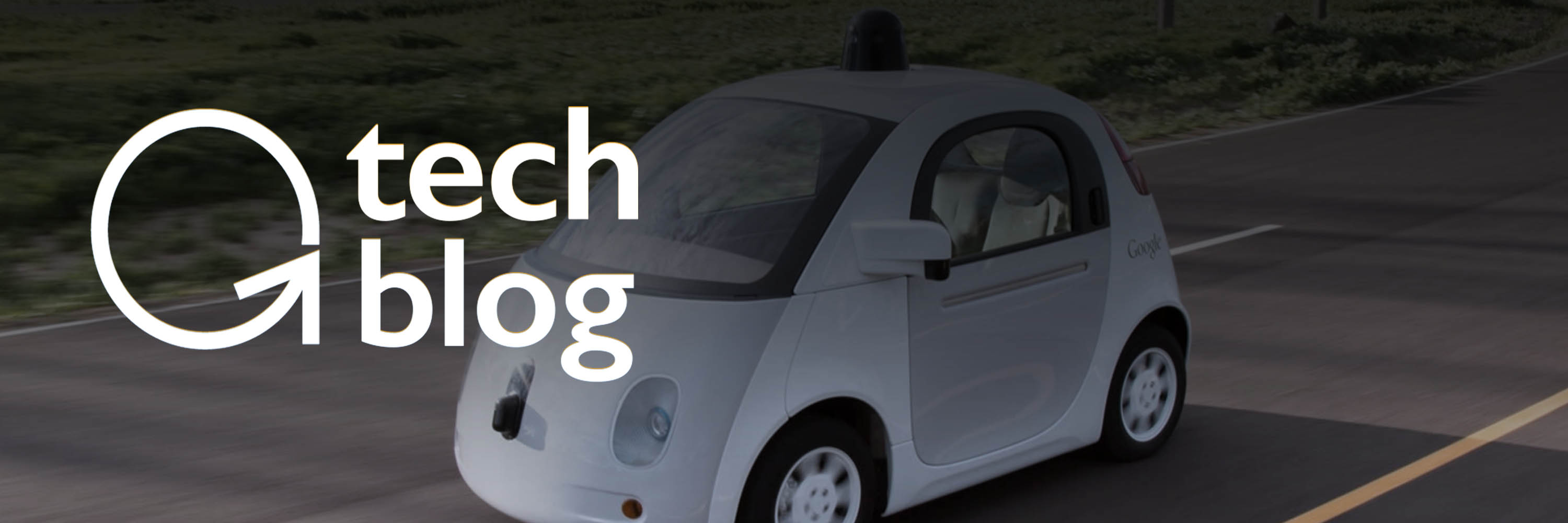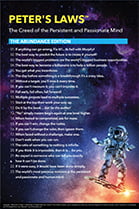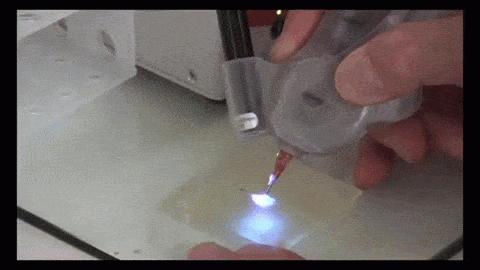
In this week's Abundance Insider: 3D printing stem cells in real time, origami-inspired metamaterials, and bacteria-powered solar panels.
Cheers,
Peter, Marissa, Cody, Maxx, Kelley and Greg
P.S. Send any tips to data@diamandis.com, and send your friends and family to this link to subscribe to Abundance Insider.
Virtual Art Sessions Let You Experience Fine Art in Your Browser

What it is: A new initiative from Google Chrome called Virtual Art Sessions brings fine art -- and its creation -- to life. Using the Google Chrome browser, users can observe six famous artists as they use the Tilt Brush app to create new works in virtual reality from start to finish, with views from any angle, including the artist's perspective.
Why it's important: This intimate look into artists' creative process is enabled -- and significantly enhanced, at least for the viewer -- thanks to virtual reality. By digitizing, dematerializing and demonetizing fine art, the Google Chrome team will also democratize its access to people around the world.
Spotted by Alan Livshin
3D Printing BioPen Lets Surgeons Draw With Stem Cells
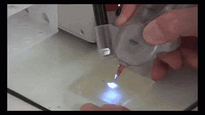
What it is: The BioPen is a 3D printing device that enables surgeons to perform "in-situ biofabrication" -- which, as Mashable describes, is "the ability to effectively print viable human stem cells into damaged joints to regrow cartilage." The BioPen lets surgeons sculpt the material in real time as they draw -- enabling them to precisely place stem cells in challenging areas like crevices or beneath existing tissue. The BioPen was developed by Peter Choong at Melbourne's St. Vincent's Hospital and Gordon Wallace at the Australian Research Council's Center of Excellence for Electromaterials Science (ACES).
Why it's important: This is a powerful breakthrough for orthopedic surgery -- and one more example of how 3D printing can revolutionize and enable truly personalized healthcare. The most exciting aspect of the BioPen, however, may be its price: ACES director Gordon Wallace revealed to Mashable that the cost of assembling the hardware is around $10,000.
Spotted by Keith Gargiulo
Generation Beyond Prepares America's Students for Deep Space Exploration

What it is: Generation Beyond is an emerging national educational program from Lockheed Martin with the goal to bring science and space to life using technology and ultimately get a new generation of school-aged children interested in space exploration. The Lockheed Martin Mars Experience Bus -- an immersive virtual reality vehicle that replicates 200 square miles of the Martian surface -- is one core piece of the curriculum, and there's also a companion app called HelloMars.
Why it's important: The Mars Experience Bus alone has been hailed as a real-life version of the beloved "The Magic School Bus" books and television programs. Virtual reality enables us to create experiences that are intensely immersive, lifelike and entertaining. Why not apply this capability to education?
Spotted by Cody Rapp
Netherlands Looks to Ban All Gas, Diesel Car Sales by 2025
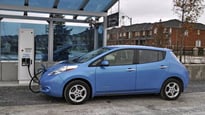
What it is: Dutch politicians are hoping to pass legislation that would ban the sale of any vehicle that emits emissions as soon as 2025 -- including efficient hybrids and plug-in hybrids. It's the latest, most aggressive effort in the Netherlands to increase the country's percentage of renewable energy. "The lower house of the Dutch parliament recently supported the motion put forward by the Labour PvdA party," the Globe and Mail reports. "The cabinet must now come up with a plan to implement the proposal."
Why it's important: Peter often discusses the benefits of constraints on innovation. While critics of this proposed legislation dismiss it as "overambitious and unrealistic," it may actually incentivize tremendous breakthroughs in clean power, autonomous vehicles and eco-friendly transportation.
Spotted by Gaetan Soltesz
Origami-Inspired Metamaterial Eyed for Robots, Space Station

What it is: Harvard University engineers and scientists have created a shape-shifting metamaterial with tremendous promise for robots or space structures. Inspired by snapology (modular, unit-based origami), the researchers developed a transformable material with three degrees of freedom -- meaning, as Design News describes, "it can be actively deformed into multiple, specific, three-dimensional shapes through embedded actuation." Thermal, water and dielectric actuators can all be embedded in the material.
Why it's important: "This research demonstrates a new class of foldable materials that is also completely scalable," said graduate student Johannes T. B. Overvelde, lead author of the article, in a press release. "It works from the nanoscale to the meter-scale and could be used to make anything from surgical stents to portable pop-up domes for disaster relief."
Spotted by Shaun Arora
USPS's Digital Mail Program Will Go Nationwide in 2017

What it is: The U.S. Postal Service has just announced Informed Delivery (ID), a free app that sends users digitized previews of the day's mail. Currently, Informed Delivery shows photos of each envelope; by 2017, full-color cameras will be able to capture images and deliver interactive marketing pieces.
Why it's important: This digitization of physical mail has interesting implications on the direct mail industry. For example, imagine if Informed Delivery becomes a frontend for Amazon and similar ecommerce sites by packaging the day's delivery of mail previews with a digital catalog populated contextually.
Spotted by Stafford "Doc" Williamson
Researchers Generate Clean Energy Using Bacteria-Powered Solar Panel
What it is: Researchers at Binghamton University's Thomas J. Watson School of Engineering and Applied Science have created a bacteria-powered solar panel that connects biological-solar cells into a bio-solar panel. This panel, the first of its kind, generated more wattage than any other small-scale bio-solar cells in existence in recent tests.
Why it's important: Creating fuel from abundant sources like bacteria -- specifically, cyanobacteria, which is found in nearly every habitat on Earth -- is an especially promising path to clean, renewable energy.
Spotted by Aryadeep S. Acharya
FemtoSats Are Tiny New Satellites That Could Democratize Space
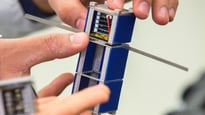
What it is: We've covered the CubeSat satellites in previous Insider issues, and a team at Arizona State University has created a new iteration called FemtoSat that's cheaper, smaller and lighter than previous generations. Sending a single FemtoSat into lower Earth orbit will set you back $3,000 and $1,000 to send to the International Space Station.
Why it's important: We're witnessing the demonetization of spacecraft development and the democratization of space research. "By reducing the launch cost, it is hoped a wider community of educators, researchers, and hobbyists can develop their own spacecraft," said the ASU researchers.
Spotted by Clyde R. Dennis
Solar Panel Produces Hydrogen Gas
What it is: A team of Belgian bioscience engineers has developed a tiny solar panel that transforms sunlight and water vapor from the air into hydrogen gas. The all-in-one, carbon-neutral system doesn't use a drop of water -- only sunlight and air -- to produce hydrogen. "Chemistry is often frowned upon as a polluting industry, but for a challenge such as climate change, it may very well provide the ultimate solution," explains Johan Martens of the KU Leuven Centre for Surface Chemistry and Catalysis.
Why it's important: This solar cell's small footprint -- and it's all-in-one system -- make it especially promising for use in developing countries or remote areas like the middle of the desert. But it isn't just for the developing world: imagine a hydrogen-powered autonomous car that can generate its own fuel using rooftop solar panels.
What is Abundance Insider?
This email is a briefing of the week's most compelling, abundance-enabling tech developments, curated by Marissa Brassfield in preparation for Abundance 360. Read more about A360 below.
Want more conversations like this?
At Abundance 360, Peter's 250-person executive mastermind, we teach the metatrends, implications and unfair advantages for entrepreneurs enabled by breakthroughs like those featured above. The program is highly selective and we're almost full, but we're still looking for a few final CEOs and entrepreneurs who want to change the world. Apply now for Abundance360 Summit if you'd like to develop an Abundance Mindset.
Know someone who would benefit from getting Abundance Insider? Sign up here.
Topics: 3D Printing Robotics




